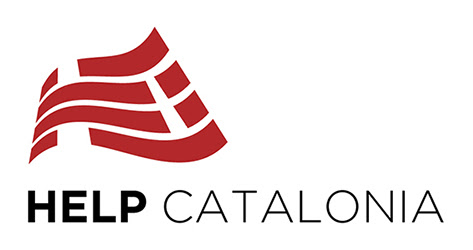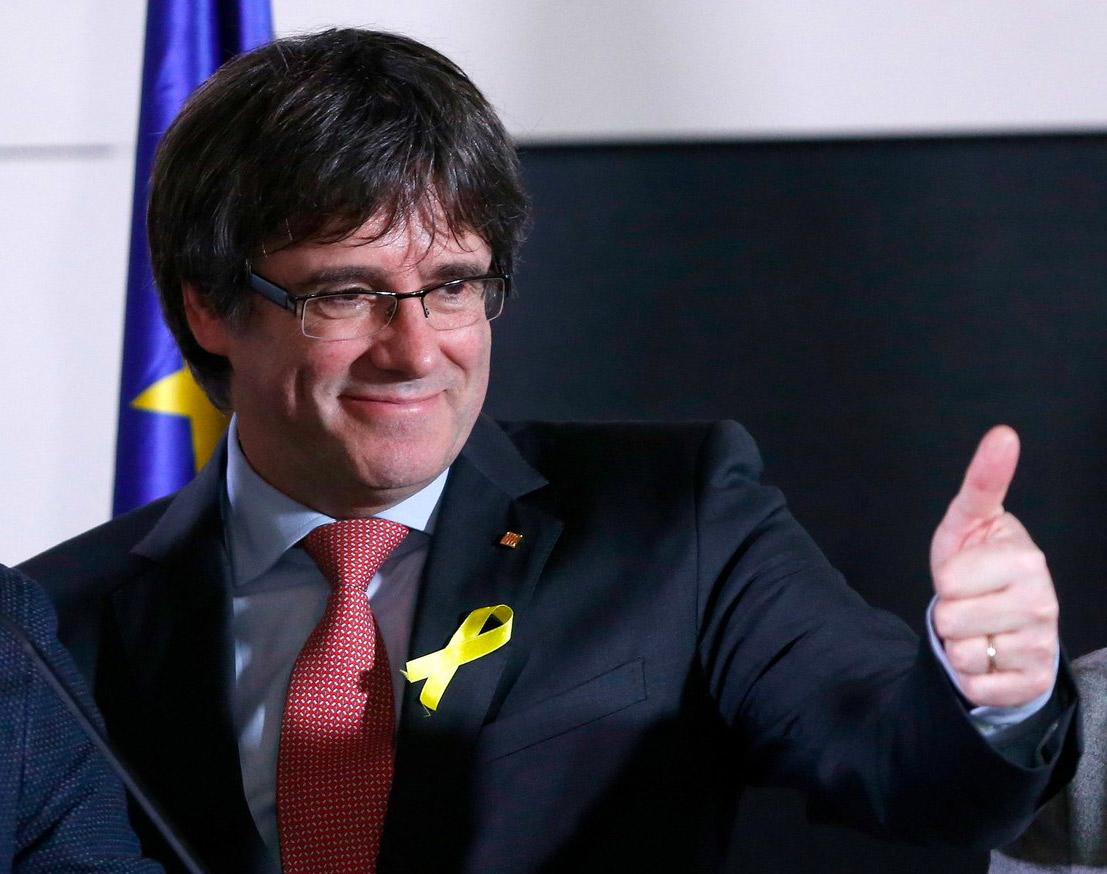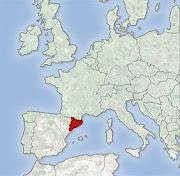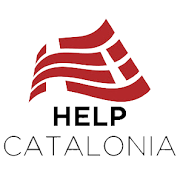Catalonia took a step towards independence last month, announcing plans for a referendum on the region’s status within Spain. The Declaration of Sovereignty of the Catalan People, passed by the Catalan parliament, marks the start of a “National Transition” for reconsidering Catalonia’s constitutional arrangement.
George Angus West
Source: The Independent Blogs'
Picture: Getty Images
There are now striking similarities — as well as important differences — between the Catalan independence movement, led by Prime Minister Arthur Mas of the Convergencia i Unio (CiU) party, and that of the Scottish Government, led by the Scottish National Party (SNP) and Scotland’s First Minister, Alex Salmond. Both regions plan to hold referendums on their constitutional futures in 2014 but the two nationalist movements face divergent challenges in their campaigns for self-determination.
Hoping to capitalize on strong nationalist sentiment, spurred by street-protests in Barcelona, the Catalan Capital, and gain an outright majority in support of a referendum, Mr. Mas held snap elections last October. Though Mr. Mas’ party fell short of his ambitions, the CiU and the Esquerra Republicana de Catalunya (ERC), in addition to other smaller parties, won a majority favoring self-determination in the Catalan Parliament.
The recent “Declaration of Sovereignty of the Catalan People” was a collaborative effort from the CiU, the Parliament’s largest party, and the ERC, which holds the second most seats and remains in opposition. Though Mr. Mas originally intended to initiate the “National Transition” and call for a referendum by 2017 without conceding to the left-wing ERC’s position on holding the vote earlier, and resistance to issues like curbing welfare spending in an independent Catalonia, the two parties are in firm agreement that there needs to be a referendum.
The Spanish federal government is far less amenable to the referendum proposed by the Catalan Parliament than the United Kingdom is regarding Scotland’s independence. The Queen’s Privy Council formally passing a Section 30 order is the final step granting Scotland the legal authority to hold a referendum, determining its status within the UK, a process initiated by the Edinburgh Agreement signed by UK Prime Minister David Cameron and Mr. Salmond last October.
The Spanish parliament in Madrid is threatening legal action to stop Catalonia’s referendum on the grounds that it violates the federal constitution, which establishes “the indissoluble unity” of Spain’s seventeen autonomous regions. Though the Spanish government stated its resolve to reject Catalonia’s recent declaration, there are arguments for constitutional alternatives, such as a “non-referendum consultation,” or the federal government permitting a referendum due to “special importance.”
Grievances put forward in support of self-determination for Scotland and Catalonia reverberate across other nationalist movements. In the autumn of 2012, when Scotland’s Edinburgh Agreement was signed, a notable achievement for the pro-independence SNP, and Catalonia saw massive nationalist demonstrations return the CiU to the Catalan Parliament with a majority favoring self-determination: Bart de Wever of the Flemish Nationalist Party (NVA) took a commanding position in the Dutch area of Belgium after regional elections; The Basque Nationalist Party, Eusko Alderdi Jeltzalea (EAJ-PNV), and EH Bildu, a nationalist coalition, won the first and second most votes respectively in the Basque region of Spain’s parliament; and in Bavaria, despite a relatively weak separatist movement, there was a widely publicized critique by longtime journalist Wilfried Scharnagl supporting the region’s independence from Germany.
This wave of nationalism has been attributed to the austerity imposed after Europe’s recent financial crisis, highlighting a “North-South” divide between creditor and debtor states within the E.U. The divide has also become apparent internally, amongst individual countries with regional discrepancies in revenue and spending, as is the case in Spain. The European Union, meanwhile presents a viable backdrop for separatist movements, unhappy with their current arrangement and whatever historical grievances, to argue for their own independent country — with representation, protection, and financial cohesion through a wider-body.
A recent volley of reports from the UK and Scottish governments show how contentious separatism and EU membership is. The UK government released a review last week stating that Scotland would face negotiations as a new state entering the EU and other international treaties, as well as insurmountable challenges replicating U.K.-wide government programs, such as for defense and intelligence gathering, and also would remain fiscally dependent on the U.K.
Reports from the Scottish government in Holyrood, however, claim independence would allow Scotland to maximize its potential as a small country with vast natural resources, and that Scotland should remain on the Pound, at least for the immediate future following independence. Maintaining Scotland’s welfare state — a priority north of the border — is another contentions issue; some believe Scotland’s public services suffer unnecessarily from budget cuts by the Conservative government in Westminster, though Unionists claim Scotland receives its fair share, or more, of government expenditure.
Spain’s reckless government spending before and after the financial crisis, as well as accusations of rampant corruption amongst federal officials, stoke historic flames of Franco-era oppression in Catalonia. Spain’s national redistribution scheme, to which Catalonia is a net-contributor for poorer regions, is another perceived injustice.
Similar to Scotland, Catalonia claims its inherent economic advantages are being suppressed under the current system. Scotland emphasizes the North Sea Oil reserves and its unique hard and soft exports, such as whisky and tartan design; Catalonia points to its powerful industrial sector. Both Scotland and Catalonia are leading Europe in wind power. While Scotland abides “by the Aquias of European law,” and having done so for decades, independence supporters claim it will easily transition into EU membership, Catalonia’s future in the EU appears more assured. Catalonia already uses the Euro, and Prime Minister David Cameron, abating a Eurosceptic faction (UKIP), recently called for a referendum on the UK’s status within the EU by 2017, threatening Scotland’s EU membership even if independence fails. Furthermore, Catalonia’s expressed focus is on being part of the EU The Declaration of Sovereignty specifically references “Europeanism” and states “The founding principles of the European Union will be defended and promoted”.
Experiencing a resurgence of late, separatist movements in Spain and the UK are not new. The IRA in Ireland and ETA in Spain once used terror to achieve political autonomy, but Sinn Fein, which unlike the IRA seeks the peaceful reunification of Ireland, won the most votes in Northern Ireland for the first time in the 2010 U.K. general elections; and El Bhidu, a coalition including former ETA parties, recently preformed well in the Basque region of Spain, despite condoning violence.
Many claim such peaceful separatist movements are a promising sign for Europe in the 21st century, and hope the effects will reach beyond Europe as well. The Premier of Quebec Pauline Marois visited Mr. Salmond this month, offering information on Quebec’s two independence referendums in 1985 and 1995. In what was largely rendered a rebuff by the media, Mr. Salmond declined the Premier’s offer without much fanfare, possibly in part because those referendums both failed or due to Mrs. Marois’ recently stated intention to hold another referendum termed the “neverendum” by some.
Scotland’s referendum in 2014 will only include options for maintaining the status quo and independence, yet Catalonia’s nationalist groups are split on whether to press for increased devolution, full independence, or a version of federalism. A question regarding increased devolution was omitted from Scotland’s referendum during negotiations between the Scottish and UK governments, though opposition parties are developing proposals for a restructured devolution settlement should the referendum fail. The Scotland Act 2012 will bring limited additional powers to Holyrood in 2016 regardless.
In Spain, the governing People’s Party of Prime Minister Mariano Rajoy may propose financial reforms as a constitutional alternative to a referendum. Over 50 per cent of Catalonians would support full independence if Catalonia were to remain in the EU, whereas roughly one third of Scots support separation, according to recent polls; yet there is vast discontent in both Catalonia and Scotland over the current arrangement of government responsibilities.
Separatist movements often build off each other, especially in an era connected by increasing globalization and social media. Other countries are following the independence movements in Catalonia and Scotland closely. Lega Nord, which formed a coalition government with the party of Prime Minister Silvio Burlesconi from 2009 until 2011, is intent on implementing federalism or limited independence for the norther region of Italy, called Pandia, and European leaders will watch as it faces important elections later this month.
Members of smaller nationalist movements across Europe, particularly Scots, are looking to the Nordic countries as examples of what they could become: highly successful, integrated into global governance, and supporting strong welfare states. There are, however, serious doubts about whether such success can be replicated, as the Nordic countries have undergone serious revaluation of their social democratic model. It is also questioned whether a multitude of small countries benefits the EU and how they would join. Nationalism is proving a persistent and often contradicting force in Europe, and as the the events in Scotland and Catalonia show, could add an interesting fold to questions of the EU’s future.
George Angus West
Source: The Independent Blogs'
Picture: Getty Images

















0 comentaris:
Publica un comentari a l'entrada